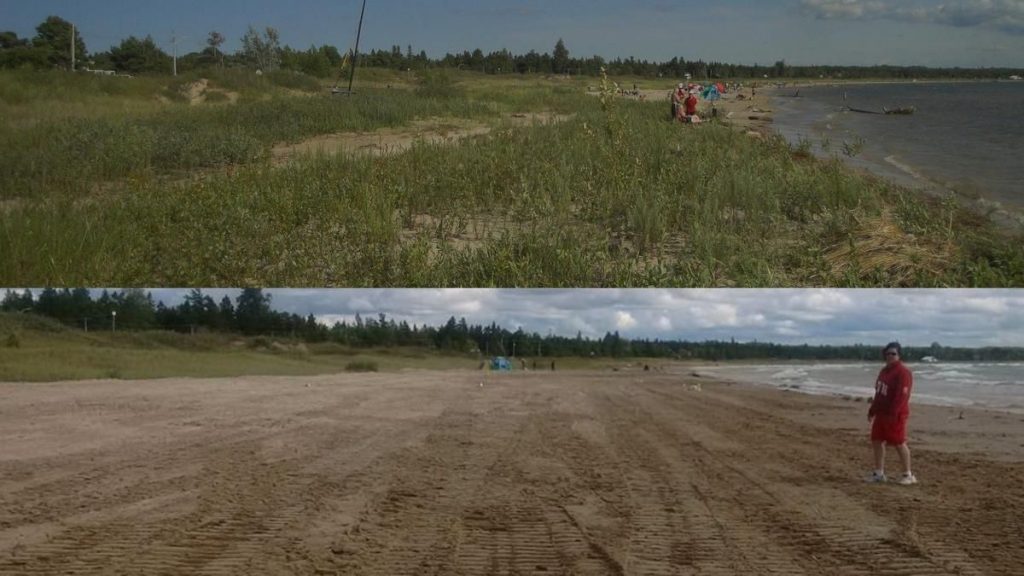
Imagine coming home one day and finding your house severely damaged, all your bank accounts drained, and people you don’t know hanging around. It would be intimidating and stressful. You might be able to adjust and rebuild there or nearby and recoup your financial losses or you might move elsewhere if you could find suitable lodging, or you could end up homeless, destitute, and starving. Scenarios like this happen after major disasters, but humans are resourceful and most of us manage to recover. Now imagine you are a forest bird arriving at your breeding grounds after a long flight and instead of an expected stand of trees you find a few scattered saplings, shrubs, and flowers interspersed between streets and houses. Bird species you are not familiar with have invaded your old haunts. Your normal food supply is nowhere to be seen. Maybe you can survive, or maybe not. The mayor of Sauble Beach, Ontario, doesn’t see this as a problem.
Evolution is a superb sculptor. Over hundreds of millions of years the machinery of natural selection has honed to pinnacles of near perfection the birds we see today, having discarded tens of thousands of species along the way that could not meet the challenges of the ever-changing earth. An altering climate, shifting continents, volcanic eruptions, fires, and other perturbations effected changes in organisms, purging some and polishing the adaptations of others. Sometimes the changes are subtle, sometimes not, but given sufficient time, ecosystems recover through succession so that today we have communities of birds well suited for survival in their particular habitats. But since the beginning of the industrial revolution the physical environment began to change at a much faster pace than previously and many birds are being left behind. I have traveled to half the countries on the earth, and my impression is that there are very few places that have not been seriously disturbed by human activity. There are cities which are virtually devoid of avian life, like Beijing and New Delhi, and metropolises like New York and London where House Sparrows and Rock Pigeons are the majority of the avifauna. But even the country of New Zealand, often considered pristine, has seen 40 of its 115 endemic birds go extinct and 40 introduced species become residents. Botanist Joseph Banks, sailing with Captain Cook to New Zealand in 1769, wrote: ‘This morn I was awakd by the singing of the birds ashore from whence we are distant not a quarter of a mile, the numbers of them were certainly very great …”. New Zealand has lost more bird species than any other country and the majority of its land birds are threatened, endangered, or on the cusp of extinction. Every nation has some version of this problem; some are addressing it by setting aside preserves, enacting environmental laws, and welcoming ecotourism, although a good many of those efforts are only moderate. Many other nations do little or nothing.
Without the interference of humans, the natural extinction rate of birds is about one per century. Today we are anticipating the extinction of about one species per year by mid-century. Since the 1500s approximately 200 species of birds have gone extinct and today at least 1200 are in danger of disappearing. The environment and the particular ecosystems in which the birds evolved and to which they are superbly adapted for survival are simply changing too fast for evolution to keep pace. Based upon the historical rates of evolution of 540 vertebrate species, animals would have to evolve at a rate 10,000 times faster than they do now to adapt to climate change by the end of the century. And climate change is happening at a slower rate than other perturbations. But the disappearance of habitats is probably the most immediate problem.